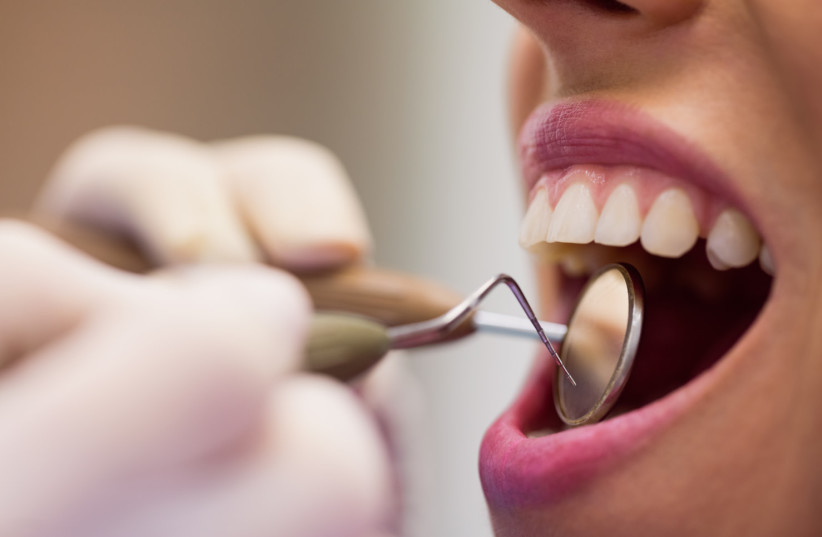Sharing clothes and food within a family is not uncommon, but the idea of sharing a toothbrush with family members crosses a red line for most people.
Jess Potter, a dentist who appeared on the British version of the reality show Married at First Sight, took to TikTok to explain her reasoning behind advocating toothbrush sharing.
In her 51-second video, which has already garnered hundreds of thousands of views on TikTok, Potter starts by asking her audience: "Do you know that you can share a toothbrush to save money?"
She then goes on to explain that this is a tip she shares with many of her patients, and surprisingly, some have embraced the idea.
However, it is important to note that sharing a toothbrush can lead to various health problems. Whether intentional or accidental, using someone else's toothbrush (or allowing others to use yours) exposes your teeth, gums, and mouth to harmful bacteria, potentially causing diseases and infections.
Why sharing a toothbrush is a bad idea
Toothbrushes harbor a wide variety of bacteria, which can be transferred when people share toothbrushes.
Harmful bacteria such as streptococcus mutans, responsible for infections and a leading cause of tooth decay, can be found on toothbrushes, posing a significant health risk. Moreover, each use of a shared toothbrush increases the amount of bacteria on it, elevating the chances of infection.
Toothbrushes can transmit blood-borne diseases, especially when gums bleed during brushing. Bacteria or viruses present in the mouth, transferred through a toothbrush, can enter the bloodstream, potentially causing minor infections and illnesses.
If the person sharing the toothbrush has hepatitis B or is HIV positive, these diseases can also be transmitted through the toothbrush when gums are bleeding.
Gum disease, a prevalent oral infection, can be treated if detected early. Unfortunately, sharing toothbrushes easily spreads this condition, often leading to severe health issues like tooth loss, painful abscesses, and receding gums. Many people remain unaware of having gum disease until it is too late.
Sharing toothbrushes puts you at risk of several infections, including those caused by viruses like herpes simplex type 1, which can spread through toothbrushes. Herpes simplex type 1 is the virus responsible for oral and genital herpes. The human papillomavirus (HPV), known to cause oral and esophageal cancer, can also be transmitted by sharing a toothbrush.
Food particles can become trapped in the bristles of a toothbrush, even if they are not visible. When using someone else's toothbrush, you expose your mouth to whatever they ate before their last brush. Apart from being unhygienic, trapped food particles serve as a breeding ground for harmful bacteria.
In conclusion, sharing toothbrushes is never a wise choice. If you accidentally use someone else's toothbrush, rinse your mouth with mouthwash or plain water to eliminate any bacteria you may have picked up. If you experience any unusual symptoms or feel unwell after using another person's toothbrush, contact your doctor and inform them about the situation.
<strong>So why does Potter recommend sharing toothbrushes? </strong><span style="font-weight: 400;"></span>
Before you get too alarmed, it's important to clarify that the dentist suggests this dubious tip only for those using electric toothbrushes.
Potter clarifies that due to the cost of living crisis that many are experiencing, sharing the handle of an electric toothbrush, and distributing the heads among household members, can be an effective way of bringing down the cost.

For those who still find the price of an electric toothbrush with multiple heads to be a bit steep, Potter has another suggestion, suggesting that people should opt for more affordable electric toothbrush heads available at drugstores instead of the pricier options.
"I know toothbrush heads are really expensive," she explains, "so instead of just buying the [brand name] ones that come with the electric toothbrush, you can just get cheaper ones [from your local drugstore]."
While Potter's explanation somewhat alleviated concerns by specifying electric toothbrushes and individual replacement heads, many still find the idea horrifying.
"Absolutely not. My OCD wouldn't allow it," wrote one user, while another said, "I mentioned this to my dentist, and she said it was a bad idea."
A third user commented, "It's a recipe for mistakes. Imagine forgetting to change the head one morning or accidentally swapping the wrong head—full of bacteria from another household member."
Conversely, some individuals welcomed the idea. "Honestly, I already do it. I can't afford four electric toothbrushes, so we each have our own heads with different colored stripes at the bottom," shared one user, and another agreed, "My family has been doing this for 20 years." A third user wrote, "We do this at my house, and I thought it was normal."
